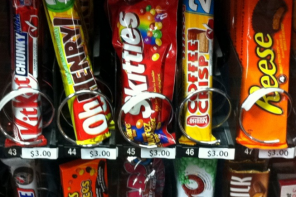Why do Realtors price their listings too high? This blog post will discuss the many reasons.
If the listing price of a home is the most important thing for a successful sale (it is), why do realtors so often get it wrong? There are, of course many reasons, and as I have recently been podcasting, warning buyers not to use the list price as an anchor for their offer. Today I’ll talk about how and why we start off on the wrong foot, with bad directions, going the wrong way and why that usually leads to a blame game, bad feelings, a lower selling price and a longer time to sell.
If you’ve ever had a free home evaluation from a realtor, you’ll know that most realtors will give you a range of list prices to choose from. Because every home is unique, because the market is always changing, in the middle of the market we often say “your home is worth somewhere between $400 and $420K”. If your home is newer and there are lots of comparable sales, then we can be more confident – and accurate. In larger and more unique homes, the list price range tends to be more subjective (and elastic). But in any case, most sellers when given a range of prices to chose from, will choose a price near the top of the range, not the middle or near the bottom.
Furthermore, I often find that sellers usually have a pretty good idea of what there home is worth but tend to overestimate the value by about $10,000 (again, I’m talking about the middle of the market. At higher price ranges overestimates can be wackier).
This all means that realtors who want listings, instead of partnering with home sellers to get the job done, to get the places sold, are starting their relationship with somewhat opposing ideas – the realtor wants the right price, the seller wants the highest price possible (and more than 20% of the time, a price impossible).
List to last
Listings are realtors’ products. If there were no listings, there would be no sales. The industry manta is ‘list to last’. Listing means lasting, surviving in a competitive industry. There are lots of realtors out there. Brokerages have typically focused on sellers. Sellers mean listings. Listings mean sales.
A realtor will take a listing at a price too high for many reasons
Bad comparables
When finding a list price for a home, the most accurate measure of market price is the price of similar homes which have just sold. These are called comparables.
But some of us use bad comparables. A small bungalow in one neighbourhood can be worth $20,000 less in another. We sometimes forget how important neighbourhood is to real estate as we go outside the target neighbourhood when looking for similar houses.
Some houses don’t have any good comparables so we find ok comparables and add and subtract for features to adjust the list price. This is guesswork.
Overvaluing Improvements
A home that has been updated and improved in major ways often appears on the market as overpriced. Again, this is symptom of the comparable nature of real estate. We don’t know if the home is overpriced until we test to see if there is a buyer out there who places the same value as the seller on the improvements.
Convenience tax
Sometimes the listing price for a place will be too high because the realtor and seller forget about the ‘convenience tax’. Let’s say that all the other homes in the neighbourhood are selling for $410,000. We have lots of really good recent comparable sales. Now, let’s say that your house needs a new roof and you’ve gotten three quotes and we know that a new roof will cost $10,000.
Logic will tell us that the correct list price for this home is $400,000, right?
Wrong.
We have forgotten about the convenience tax. Home buying is an emotional decision. Asking the buyer to take on a new roof right away is going to cost you more than the $10,000 if you had done it yourself.
Experience
Realtors carry a lot information around in their heads. If you’ve every read Malcolm Gladwell, this is what he refers to as the 10,000 hours. Practice, practice, practice makes perfect. Experienced realtors have a pretty good idea (but not a great idea) of what will sell at what price and what won’t.
Unfortunately real estate looks like a great career and is easy to get into so we always have lots of new agents joining our ranks. Most new agents don’t last two years. Almost 70% of new agents will be out of the real estate business altogether within their first five years. That means, some of us, though our intentions are good, are too new and inexperienced or overconfident but under-capable to get the price right.
Market elasticity
You can’t time the real estate market but there are market forces at play that sometimes go against you and sometimes go for you. The real estate market expands and contracts during the year. As a result, home prices are somewhat elastic as well. In the springtime and to a smaller degree in the early autumn, the real estate market heats up. There are more sellers selling and there are more buyers looking. This activity might lead to shorter time on the market and higher sale prices for homes. Might.
During the year, the supply of and the demand for different kinds of houses at different price ranges changes. If there is suddenly an oversupply of one kind of home in a certain price category or neighbourhood, downward pressure will be put on those home prices.
In a falling market, where homes are priced on comparable sales, a listing becomes overpriced because this information is slow to filter through. Essentially, the tide goes out and your listing is beached at a high water mark.
Media spin, statistical references
The news coming out of real estate board offices always has a positive spin. When the market is hot, there is lots of frothy news about how great the market is. But when the market is slower, we pull out the five-year averages and other positive means of measure.
This means that home sellers (and their realtors) will overprice the listing by mistaking fiction for reality.
Price creep
As people get their homes ready for sale, they start to place a higher value on them. This is called the Ikea Effect. It is natural to think after you’ve spruced things up, “this is a great place, I should ask for more money”.
We can always come down
Home sellers are not dumb. They know that their price is too high. They’ll say, “we want to try it out at this price”, or, “we can always come down”.
Good logic, lousy strategy.
Pride and other intangibles
Emotional attachment, pride of ownership, not needing to sell, overvaluing upgrades and improvements, anecdotal evidence and advice from friends and family, fallacious reasonings based on faulty knowledge will often lead to a price too high.
Working the listing
Often a realtor is faced with a choice.
A) take the listing at the seller’s price, or
B) refuse the listing.
Given that choice, most realtors will take the listing. Realtors, especially realtors who do not already have a strong connection with the potential home seller know that they only have one shot at the listing. The seller is interviewing three realtors, and he is one. They have nothing to lose and everything to gain by taking the listing.
As an aside, common advice that potential home sellers receive is to interview three realtors. I think that is bad advice. It assumes that all realtors do the same thing in the same way (actually many do). My advice: instead of interviewing three realtors, spend your time researching 30 realtors. I think that will lead to much better results.
What will a realtor gain by taking an overpriced listing?
A listing
He would rather have a listing than some other realtor having it. If you don’t have it, you have nothing. If you have it, you have a chance.
Price adjustment
Realtors know that selling a house can be exhausting for the sellers. Keeping the house neat and tidy for showings and vacating the home for showings takes its toll on home sellers. There is also the mental strain of not selling. It wears you down. Everyday can seem like a week when you are selling your home. The listing agent can either discuss a schedule to reduce the price over time or will approach you with the idea after the first few weeks on the market.
Busy work
I sometimes say that being a real estate agent is a lot like being a fireman. There is lots of down time with little to do and then a lot of excitement and activity when the offer comes. I personally think this is why many of us partake in time-killing marketing efforts, long and unimportant office meetings, antiquated sales training sessions, mastermind (story-telling) sessions with other realtors and other low-yield activities during work time.
Having a listing gives realtors something to do. Marketing, open houses, answering incoming inquires and following up with other realtors and potential buyers, client contact…There is lots of work to do around a listing.
To have and to hold
Some realtors, it seems, just like to have listings. A listing gives them something to talk about around the office. A listing puts their name on the big board in the bullpen at the back of the office.
Ego, pride and redemption
Having a high-priced, gorgeous home listed is good for the ego. You get to hang around in a palatial setting. That feels nice.
For new agents, having a listing gives you a reason to stay in the business. It buys you more time from your family and from yourself that you can and will make it in this business. Listings bring (temporary) redemption.
Lead capture
I met with a realtor last week who told me that he does more than 50 open houses a year. He said most of his business comes from open houses. Listings are used to generate business for the realtor. He finds new buyers from his listings. They come into his open house. They call on the sign or perhaps from a magazine ad (though there is little evidence of that).
Listings also lead to more sellers. A good realtor will market around his listing. If anyone else in the neighbourhood is think of selling, they will see his sign, get his postcard, maybe a knock on a door, an invitation to an open house or a conversation at an open house.
Advertising
Many big name realtors got that way through advertising. Their adverting budgets are big. They are committed to buying one or more pages of advertising in glossy real estate magazine every month. They get a special rate if they commit to a full page, every month for twelve months. Your listing helps them fill the space.
Teams
If you have a team, you have to keep them busy. Your over-priced listing fits the bill. It fills that gap.
Luck, fate and dreams
You never know, do you? Maybe someone from Toronto will show up with a suitcase full of money and buy your overpriced listing. It could happen. Torontonians do in fact think our real estate is cheap, which it is compared to theirs.
However, my experience with Toronto buyers is that they are used to playing a different game of real estate. They are not shy about low-ball offers, and they want your furniture too, at least that could be their opening gambit.
You could get lucky in other ways. Maybe a family member lives in the neighbourhood and someone puts a higher than market value price on your home because they want to be near family.
Maybe your buyer has simply run out of time or energy and has to buy, even though they know that they are paying too much.
Maybe, maybe, maybe. You can always find anecdotal evidence to support your flawed logic for an over-priced listing. It happens all the time.





